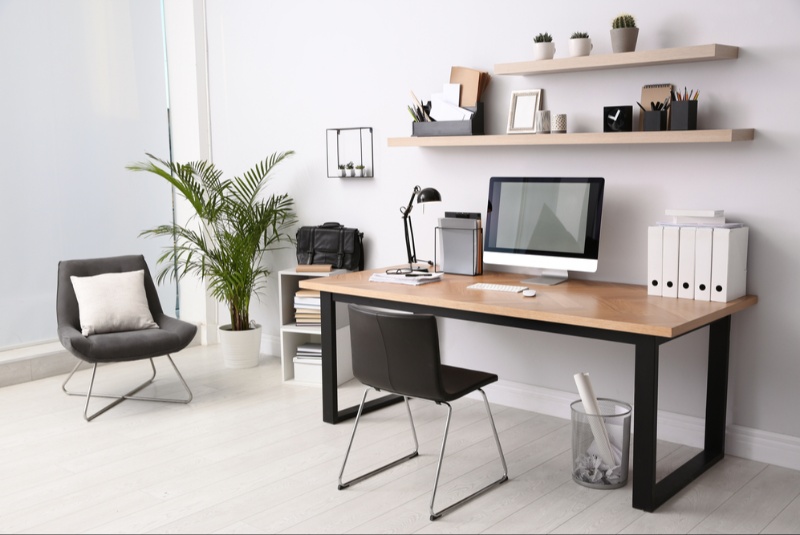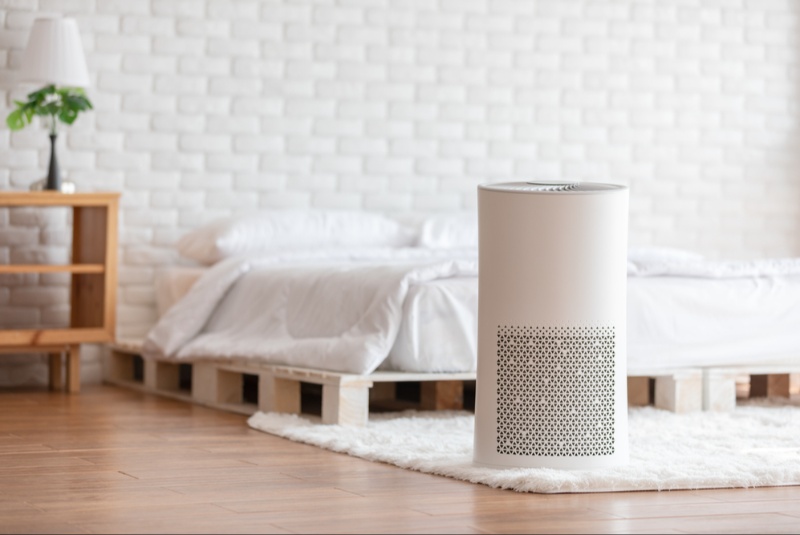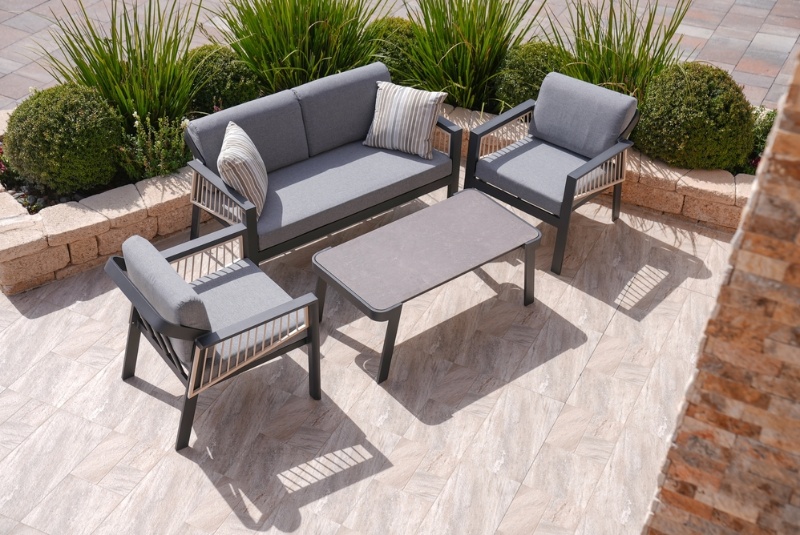Creating an efficient and comfortable home office starts with selecting the right desk. This comprehensive guide will help you navigate the myriad options available, ensuring you choose a desk that meets your functional needs and complements your home’s aesthetic.
Assessing Your Space
Before purchasing a desk, it’s crucial to evaluate the space where you plan to set up your home office. Measure the dimensions of the room, including the height of the ceilings and any architectural features like windows or built-in shelving. Understanding your space constraints will help you determine the size and shape of the desk that will fit comfortably. Consider the room's layout and how the desk will fit with other furniture and office equipment. This step ensures that you select a desk that not only fits physically but also enhances the overall flow and usability of your office space.
Identifying Your Work Needs
The type of work you do will significantly influence the kind of desk you need. If your work involves a lot of computer use, look for desks with built-in cable management systems and enough surface area for monitors and other peripherals. For tasks that require spreading out documents or creative projects, a larger work surface might be necessary. Think about any additional storage needs for office supplies, files, or personal items. Identifying your specific work requirements helps in selecting a desk that supports your daily activities, thereby enhancing productivity and comfort.
Choosing the Right Desk Type
Desks come in various styles, each suited to different work environments and personal preferences. Standard writing desks offer a simple, flat surface ideal for tasks that require space for writing or using a laptop. Executive desks are larger, often with built-in storage, providing a commanding presence suitable for spacious home offices. Corner desks maximize space efficiency, fitting snugly into corners and providing ample work surfaces. Standing desks promote better posture and health by allowing you to alternate between sitting and standing. Understanding the different types helps you choose a desk that best fits your working style and office setup.
Considering Ergonomics
Ergonomics is critical for maintaining comfort and productivity, especially if you spend long hours at your desk. An ergonomic desk should allow you to sit with your feet flat on the floor, your knees at a 90-degree angle, and your computer screen at eye level. Adjustable desks, whether they offer height adjustment for sitting and standing or tilting features for different tasks, can help you achieve optimal ergonomic positioning. Consider pairing your desk with an ergonomic chair and accessories like keyboard trays or monitor stands to further enhance comfort. Prioritizing ergonomics helps prevent strain and injuries, making your home office a healthier workspace.
Evaluating Material and Build Quality
The material and build quality of a desk affect its durability, aesthetics, and maintenance requirements. Solid wood desks, such as those made from oak or walnut, are sturdy and offer a classic look, but they can be heavy and expensive. Laminate desks provide a more affordable and lightweight option while still offering a variety of finishes. Metal desks are durable and modern but may lack the warmth of wood. Consider the desk’s weight capacity, especially if you plan to place heavy equipment on it. High-quality materials and construction ensure your desk withstands daily use and remains a functional piece of furniture for years.

Assessing Storage Needs
Adequate storage is essential for keeping your home office organized and clutter-free. Desks with built-in drawers and shelves provide convenient storage for office supplies, documents, and personal items. If your desk lacks built-in storage, consider adding file cabinets or bookcases to complement it. Modular desks with customizable storage options allow you to adapt the desk to your changing needs over time. Assessing your storage requirements helps you choose a desk that keeps your workspace tidy and efficient, contributing to a more productive work environment.
Considering Aesthetic Appeal
Your desk should complement the overall decor of your home office and reflect your personal style. Whether you prefer a sleek, modern look with clean lines and minimalist design or a more traditional style with ornate details and rich wood finishes, there are desks to match every taste. Consider the color, texture, and design elements of the desk and how they harmonize with your existing furniture and decor. A desk that fits well with your aesthetic preferences not only enhances the visual appeal of your office but also creates an inspiring and motivating work environment.
Budget Considerations
Setting a budget for your desk purchase helps narrow down your options and ensures you find a quality desk within your price range. While it’s tempting to opt for the cheapest option, investing in a high-quality desk can save money in the long run by reducing the need for replacements and repairs. Look for desks that offer good value for money, balancing cost with features, durability, and aesthetic appeal. Consider buying during sales or from discount retailers to get the best deals. Having a clear budget allows you to make a well-informed decision that meets both your financial and functional needs.
Reading Reviews and Recommendations
Before making a final decision, read reviews and seek recommendations from other home office users. Customer reviews provide valuable insights into the desk’s durability, ease of assembly, and overall performance. Look for consistent feedback on key aspects such as comfort, functionality, and build quality. Additionally, ask friends or colleagues for their recommendations based on their experiences. Gathering information from multiple sources helps you make a well-informed choice, ensuring you select a desk that meets your expectations and provides long-term satisfaction.
Exploring Customization Options
If you have specific needs or preferences that off-the-shelf desks don’t meet, consider customizing your desk. Many manufacturers offer options to customize the size, material, finish, and features of their desks. Customization allows you to create a desk tailored to your exact requirements, ensuring it fits perfectly in your space and meets all your functional needs. While customized desks can be more expensive and may have longer lead times, the benefits of a personalized workspace often outweigh these considerations. Exploring customization options helps you find a desk that perfectly suits your home office setup.
Selecting the perfect desk for your home office involves careful consideration of various factors, from space and ergonomic needs to material quality and aesthetic preferences. By taking the time to assess your specific requirements and researching your options, you can find a desk that enhances your productivity, comfort, and enjoyment of your workspace. Investing in a high-quality desk tailored to your needs ensures a functional and inspiring home office, making your work-from-home experience more efficient and enjoyable.




